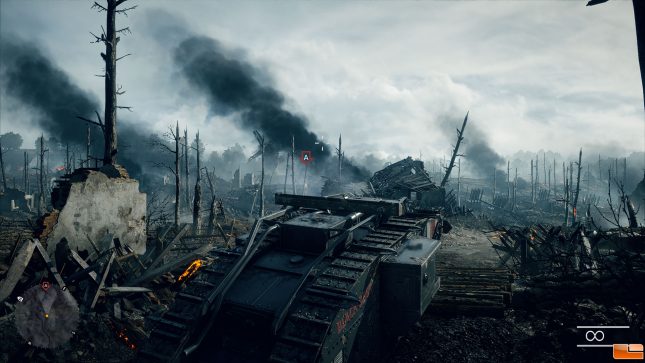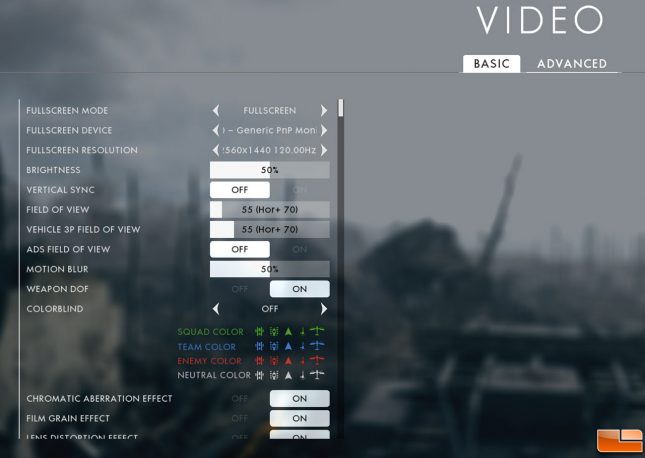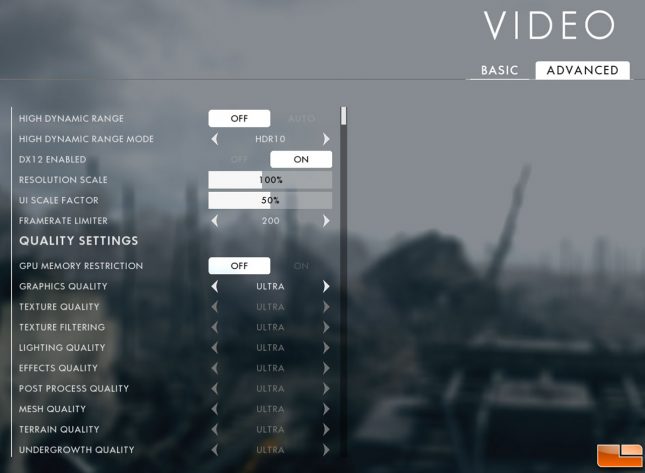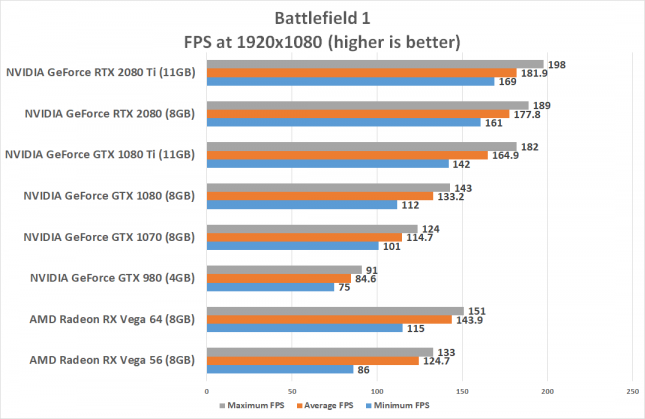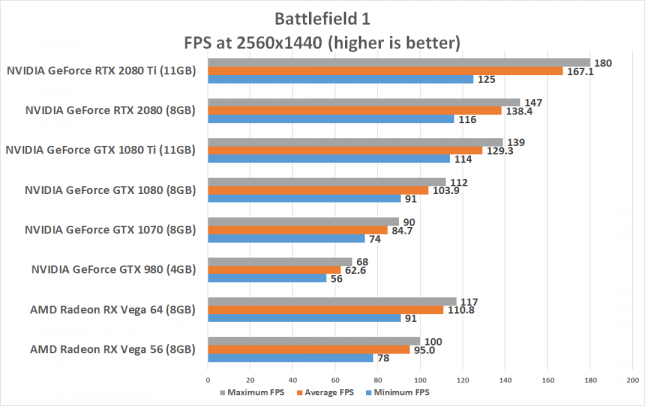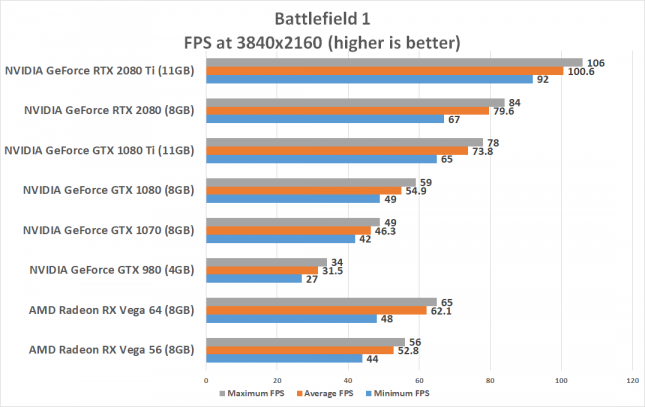NVIDIA GeForce RTX 2080 Ti and RTX 2080 Benchmark Review
Battlefield 1
Battlefield 1 (also known as BF1) is the fifteenth installment in the Battlefield Series developed by DICE and published by EA. The game is set during World War I. It was released world wide on October 21, 2016. The singleplayer campaign of Battlefield 1 takes place across six different “War Stories” which revolve around different people in different aspects of the Great War in campaigns such as the Italian Alps and the deserts of Arabia. We benchmark in Through Mud and Blood, which is the second mission in singleplayer campaign. Taking place late in the war, the player assumes the role of Danny Edwards, a British recruit joining the crew of a Mark V Landship named Black Bess as their new tank driver. New to the war and inexperienced in driving the unreliable vehicle, Edwards is given a trial by fire with his first mission: punch through the German line at Cambrai with a broken tank and a crew that has no trust in him.
Battlefield 1 features the Frostbite 3 game engine and has very good graphics with tons of destructibles. Maps also now feature dynamic weather systems, affecting combat in various ways; for example, The St. Quentin Scar can either start as a clear, sunny day, a dark, foggy day, or in the middle of a rainstorm, and switch between them during the round.
We tested BF1 with the ‘Ultra’ graphics quality preset in DX12 with the GPU Memory Restriction turned off. We also disabled VSync. FRAPS was used to manually record the frame rate in a repeatable section of the campaign.
Benchmark Results: The NVIDIA GeForce RTX 2080 Ti is a monster and average over 100 FPS on Battlefield 1 with Ultra image quality settings. That is 36% faster than the GTX 1080 Ti and 62% faster than the AMD Radeon RX Vega 64. The GeForce RTX 2080 is 45% faster than the GTX 1080 and slightly more than 2.5x faster than the GTX 980. Super impressive results at all three resolutions. Can you believe we are approaching 200 FPS on average on a 1080P display? It is about time to stop benchmarking 1080P on high-end cards.

